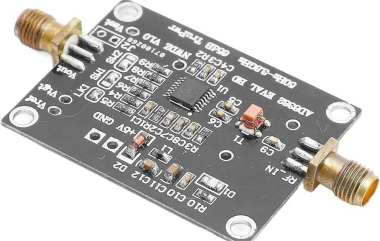
Accurate measurement and conversion of AC signals are crucial in today’s electronic devices. RMS-to-DC converters, as essential components, are widely used in various fields including power monitoring, industrial automation, and measurement instruments. This article provides a detailed overview of RMS-to-DC converters, including their definition, working principle, features and advantages, types, and applications.
Catalog
I. What Are RMS-to-DC Converters?
I. What Are RMS-to-DC Converters?
RMS-to-DC converters are electronic components that convert the effective value (RMS value) of an AC signal into a DC voltage. They provide a stable DC voltage proportional to the RMS value of the input AC signal, enabling precise measurement and control of the AC signal.
II. Working Principle
The operation of an RMS-to-DC converter involves several key steps:
· Input Signal Processing: The AC signal is input through the converter’s input terminals.
· Signal Rectification: An internal rectification circuit converts the AC signal into a pulsating DC signal.
· Averaging Process: The pulsating DC signal is smoothed into a stable DC voltage through filtering and averaging circuits, which represents the RMS value of the input AC signal.
· Output: The stable DC voltage is output for further measurement or control.
III. Features and Advantages
· High Precision: RMS-to-DC converters provide accurate measurement of the RMS value of AC signals, ensuring high precision in conversion.
· Wide Input Range: They support a broad frequency range of AC signals, making them suitable for various applications.
· Linear Response: The output DC voltage maintains a linear relationship with the RMS value of the input signal, ensuring accurate measurement results.
· Stability: The output voltage is stable, making these converters ideal for precision measurement and control applications, and minimizing system errors.
IV. Types
· Analog RMS-to-DC Converters: These converters use analog circuitry for RMS-to-DC conversion, typically including rectification, filtering, and averaging circuits. They are suited for applications requiring real-time measurement.
· Digital RMS-to-DC Converters: These converters employ digital signal processing technology for high-precision conversion. They offer enhanced accuracy and functionality, making them suitable for high-end measurement equipment and complex applications.
V. Applications
· Measurement Instruments: Used to accurately measure voltage and current effective values in power systems, providing precise performance data for equipment.
· Power Monitoring: Monitors and controls power consumption in electrical systems, helping to optimize energy use and improve system efficiency.
· Industrial Automation: Utilized in automation systems to monitor and control the performance of electrical equipment, ensuring stable operation.
· Household Appliances: Measures and controls power usage in household appliances, enhancing their efficiency and safety.
VI. Conclusion
RMS-to-DC converters play a crucial role in the electronics industry, with their high precision, wide input range, and stability making them indispensable across various applications. From measurement instruments to industrial automation, the range of applications for these converters meets the need for accurate AC signal measurement in different scenarios.




